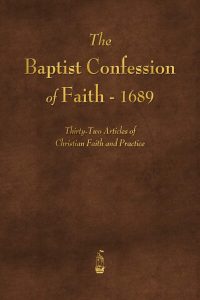We Need More Bible in Youth Ministry: A Puritan Perspective
The importance of Scripture in youth ministry cannot be overstated. In a world where distractions abound and the culture is ever-shifting, it is crucial for young people to be grounded in the unchanging Word of God. Puritan theology offers valuable insights into the essential role the Bible should play in the lives of youth, particularly within the context of youth ministry. Their emphasis on biblical authority, spiritual formation, and the call for personal holiness provides a timeless framework for discipling the next generation. This article explores why we need more Bible in youth ministry through the lens of Puritan thought.
The Puritan Understanding of Scripture
The Puritans held a high view of Scripture, believing it to be the very Word of God, divinely inspired and authoritative in all matters of life and faith. For them, the Bible was not just a book of spiritual guidance or moral teachings—it was the foundation of everything. The Puritans believed that God revealed Himself to humanity through His Word, and it was only through the Bible that one could come to know God and understand His will for their life. This conviction forms the bedrock of Puritan theology and offers a profound insight for contemporary youth ministry.
J.I. Packer, a key scholar on Puritan thought, highlights that the Puritans were relentless in their commitment to Scripture, seeing it as indispensable for salvation, spiritual growth, and godly living. For Puritans like John Owen, Richard Baxter, and Thomas Watson, Scripture was the key to unlocking true wisdom and understanding of life. Their writings and sermons were saturated with biblical references, exhorting the faithful to meditate upon, memorize, and apply God’s Word in every area of their lives.
The Bible as the Source of True Knowledge
One of the central themes of Puritan theology is the idea that the Bible is the ultimate source of true knowledge. The Puritans believed that without the Bible, humanity was lost in darkness. As John Owen wrote, “The Bible is the Word of the living God, and the fountain of all true wisdom.” For the Puritans, education—especially in the context of youth—was not merely about acquiring worldly knowledge, but about learning to know God through His Word. This view is incredibly relevant to youth ministry today.
In an age where young people are inundated with secular teachings, media influences, and worldly philosophies, the Bible offers the only sure foundation upon which to build a life. Youth ministry should not just aim to entertain or engage young people with catchy programs or trendy methods—it must point them to the Bible as the source of all truth. The Puritans’ insistence on the centrality of Scripture in all aspects of life challenges youth ministries today to return to the basics of biblical teaching. It is through the Word of God that young people can truly come to understand who they are, their purpose in life, and their ultimate need for Christ.
The Importance of Scripture in Spiritual Formation
The Puritans were deeply concerned with the spiritual formation of individuals, and they recognized that this process was intricately tied to Scripture. Richard Baxter, one of the most influential Puritan pastors, wrote extensively about the need for personal holiness and the role that the Bible plays in sanctification. He argued that Scripture was essential for building the Christian life, stating that “the Word of God is the means of spiritual growth, the instrument of sanctification, and the food of the soul.”
Youth ministry, then, must be rooted in the Bible if it is to contribute meaningfully to the spiritual formation of young people. The Puritans understood that the Bible was not only for salvation, but for the ongoing process of sanctification. Youth ministry should emphasize the transformative power of the Bible in the lives of young people, helping them understand that their faith is not just about intellectual assent to Christian teachings, but about a life that is continually shaped by God’s Word. As they grow and mature in their faith, young people must learn to see the Bible as both a mirror and a guide—revealing their sin and pointing them to Christ, while also offering instruction on how to live a life pleasing to God.
The Role of Youth Ministry in Discipling the Next Generation
The Puritans placed a strong emphasis on the role of the church and its ministers in discipling the next generation. They understood that youth were not just the future of the church—they were the church in the present. The Puritans believed that it was crucial to instill biblical truth in children and adolescents from an early age, helping them understand both the seriousness of sin and the beauty of God’s grace.
In youth ministry, the responsibility to disciple young people is immense. The Puritans understood that true discipleship involved more than just teaching young people Bible stories—it was about helping them internalize the truths of Scripture and live them out in every area of their lives. Youth ministers must recognize that the Word of God has the power to radically transform lives, and they must be faithful in preaching, teaching, and applying the Bible in a way that leads to real spiritual growth.
The Puritans also emphasized the role of personal accountability in the Christian life. They encouraged mutual care and oversight among believers, and this can be applied to youth ministry today. It’s not enough to simply teach the Bible to young people—it’s important to walk alongside them, to help them wrestle with the challenges of faith, and to hold them accountable to live according to the truths they are learning.
Scripture in the Context of Modern Youth Culture
In many ways, the challenges faced by Puritans in their time parallel those we face today in youth ministry. The Puritans lived in a society that was often hostile to the Christian faith, and they saw it as their duty to preserve the purity of the gospel in the face of widespread moral decay. Today, youth face similar pressures—from secularism and materialism to the ever-increasing prevalence of technology and social media.
Despite these challenges, the Puritans believed in the sufficiency of Scripture to address the needs of every generation. The same Bible that spoke to the Puritans speaks to the young people of today. The Word of God has the power to confront sin, encourage holiness, and provide the hope of the gospel to those who are struggling. As J.I. Packer once said, “The Bible is not just a book of ancient truths, but a living Word that continues to speak to us today.” Youth ministry must make Scripture the centerpiece of its mission, ensuring that young people are equipped to navigate the challenges of life with the wisdom and strength that only the Bible can provide.
The Puritan Call to Holiness in Youth Ministry
One of the most striking aspects of Puritan thought is their unwavering commitment to holiness. The Puritans believed that true Christianity was marked by personal transformation, a change in character that was evident in one’s actions, thoughts, and desires. Holiness was not a suggestion—it was a command. The Puritans understood that true faith in Christ always leads to a changed life.
In the context of youth ministry, this Puritan emphasis on holiness challenges youth workers to not only teach young people about the Bible but to show them how the Bible applies to their lives. Young people must be taught to live out their faith in practical ways—whether it’s in their relationships with others, their attitudes toward sin, or their approach to work and school. The Bible, according to the Puritans, is the standard for all of life, and it is through the Word of God that young people will be shaped into the image of Christ.
Conclusion: A Call for More Bible in Youth Ministry
The Puritans offer us a compelling vision for youth ministry—one that is centered on the Bible, committed to the spiritual formation of young people, and dedicated to cultivating holiness. The Bible is not a book that should be reserved for adults or for those who are well-versed in theology—it is for everyone, including the youth. As youth ministers, we must be faithful to the task of teaching young people the truths of Scripture, encouraging them to apply those truths in their daily lives, and guiding them toward a deeper relationship with God.
The call for more Bible in youth ministry is not just about increasing the amount of Bible teaching—it’s about cultivating a love for Scripture and a commitment to live according to its truths. The Puritans’ unwavering devotion to the Bible serves as a powerful reminder that, in an age of distractions and uncertainty, the Word of God remains the one sure foundation upon which to build a faithful and vibrant Christian life.




